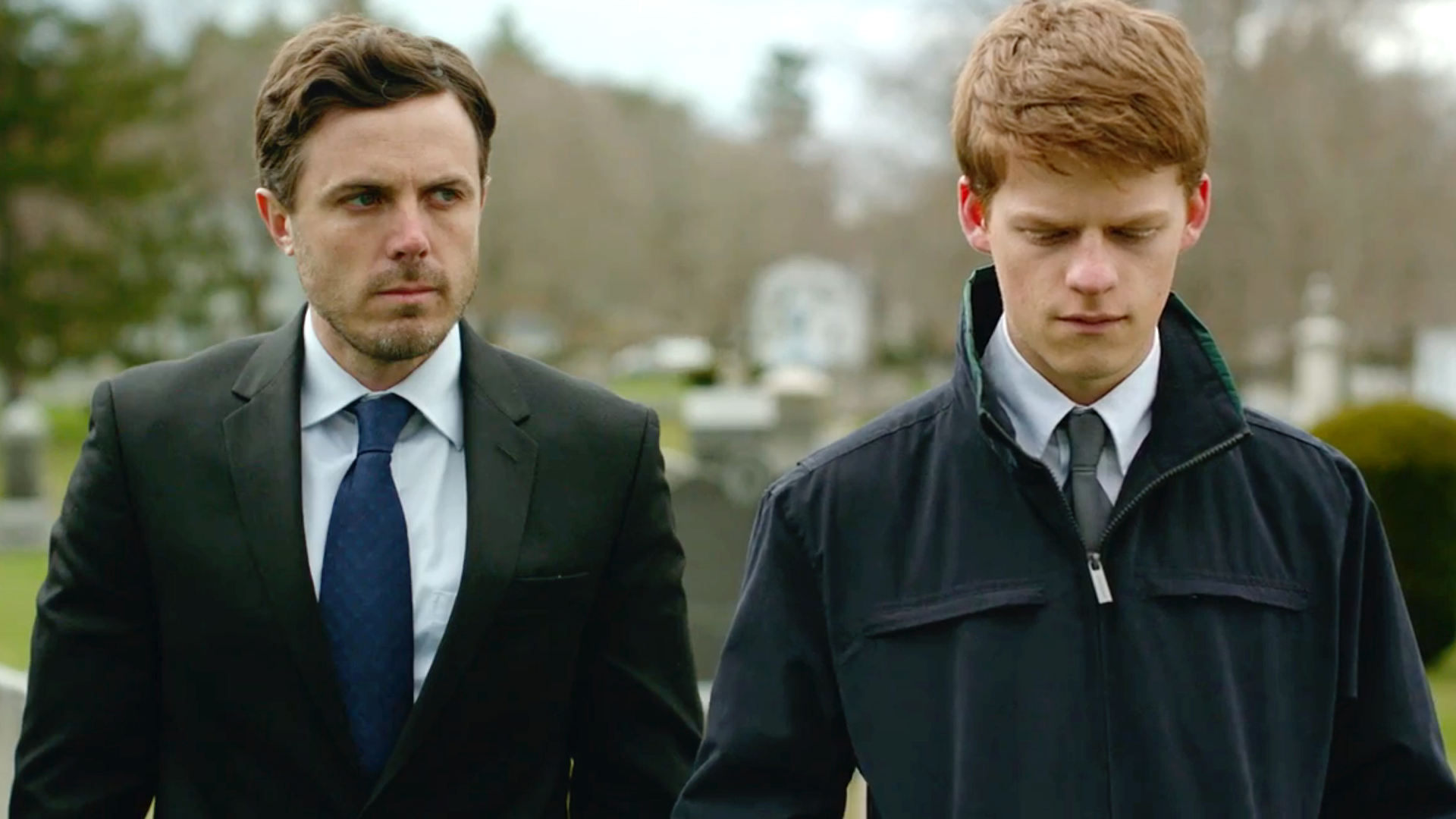If you’ve made it this far in life without ever losing somebody, then consider yourself lucky. But if you, like most people, have lost someone, expect to see that grief portrayed with eerie and acute detail in Manchester by the Sea. The movie begins with the death of Lee Chandler’s brother who has left Lee in charge of his teenage son. From there, the movie follows the two as they navigate their grief, both shared and individual, and Lee works out their living arrangements. There is a reality to the plot of the movie–you could see it happening to someone you know for it is easy to see how the complications of death extend beyond the moment, beyond the dying and into the living, the very real and physical aspects of the struggle to relearn normal.
But besides just the situation being realistic, the way the film handles it is also real. When Lee goes to the hockey rink, where his brother’s son, Patrick, has practice to tell him that his father is dead, the camera’s focus is not on Patrick’s face. Rather, viewers experience two views: one, where Patrick is viewed speaking to Lee from the perspective of the remaining hockey players; and two, the hockey team watching the two speak, knowing it has something to do with his father, knowing that it is serious, but not certain quite how serious, if this is it. Then, when one of the players informs the coach that the man speaking to Patrick is his uncle and that the only reason his uncle ever comes to Manchester is when Patrick’s father is in the hospital, we see the coach, who only moments before was yelling at Patrick, skate over there and give a Patrick an awkward side-hug. The scene is not sentimental. It is not sweet. It is not hard-hitting tragedy. It is uncomfortable. Movies tend to portray these moments as dramatic and profound and huge–but, finding out your father, who was known to be suffering from a fatal heart condition, has finally died is not surprising or shocking, but rather the end of a long struggle, and you are horrifically sad, but you are also tired and relieved. And your entire team watching as you find out, your coach hugging you in a rare instance of physical intimacy, is not a supportive environment. It’s draining, it’s another mask you have to wear, another group of people you have to pretend to.

The film is full of moments like these. Scenes where the emphasis of the grief is not placed on the sadness, but the reality, the awkwardness of grieving. Still, this doesn’t take anything from the sadness of the film. Those moments hit just as hard, if not harder than they would otherwise. Besides, there are other scenes where all sound drops out, where we watch the characters interact with only the extremely intense, classical soundtrack playing in the background. Everyone in the movie is such an excellent actor (see Casey Affleck winning the Golden Globe for his role as Lee) that these scenes manage to be emotionally rich despite the lack of dialogue. In fact, its absence might even make them better.
Don’t be totally deceived however, for this movie is not all gloom and darkness. There is humor. Characters joke with each other and teenagers are sassy in a genuine way. Sometimes the awkwardness is funny, even if tinged with sadness. Like life, characters experience ups and downs, wins and losses. Like life, it hurts sometimes.
Go watch this film. It’s really, really, really sad, but also, really, really, really good. It should be playing at the Michigan Theater for the rest of the week and student tickets are $8.


